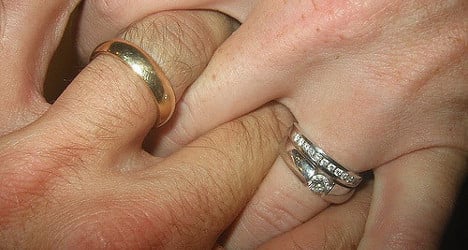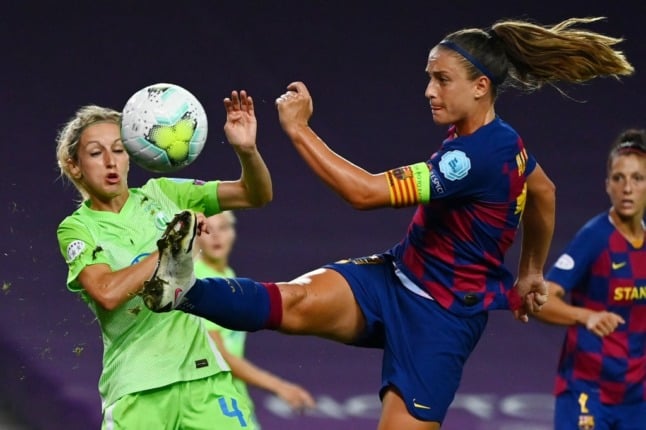Prior to 2013, women had to either take their husband’s surname or double their surname with his.
Since the law changed, women in Switzerland can choose to keep their own surname, or the couple can choose either the woman or the man’s surname as their married name.
Double names such as Meier Müller are no longer allowed. The hyphenated version, for example Meier-Müller, is allowed to be used in everyday life but is not considered a person’s official registered name.
According to official figures received by the Schweiz am Sonntag newspaper, 71 percent of women married in 2013 and 2014 decided to take on their husband’s surname while just 24 percent kept their own.
Only two percent of men decided to take their new wife’s surname as their married name.
Speaking to the paper, Marco Kühnis, director of the Davos civil status office, said the figures indicate a growing trend among young people towards traditional values.
“Young people today give more importance to traditions than they did ten or 20 years ago,” he said.
Fleur Weibel, a sociologist from the University of Basel, told the paper that most couples want to have the same surname to appear as a united family.
“Since the double name option is no longer available, most people opt for the man’s name. For many men it is unimaginable to take their wife’s surname. Unless, perhaps, their own name is bizarre.”
According to Weibel many women therefore face the dilemma of having to choose between keeping their identity and family cohesion.
She is among many people calling for the reintroduction of the official double name, “so that men and women can keep their identity,” she told the paper.
Swiss couples’ still-traditional stance on married names is on a par with other European countries that allow a choice of surname.
In Germany, where women may keep their surnames after marriage, just 19 percent chose to do so, according to a 2014 market research study.
However laws on the subject vary wildly across Europe.
In France married women legally keep their maiden name as their official name, although they may take their husband’s name or double-barrel the two for everyday life.
And in Greece women are required to keep their own surnames for life, although they can add their husband’s (and he hers) to their own if they wish.
In the UK women can choose any number of options, including keeping their name, double-barrelling it or ‘meshing’ it with their husband’s to create an entirely new name.




 Please whitelist us to continue reading.
Please whitelist us to continue reading.
Member comments